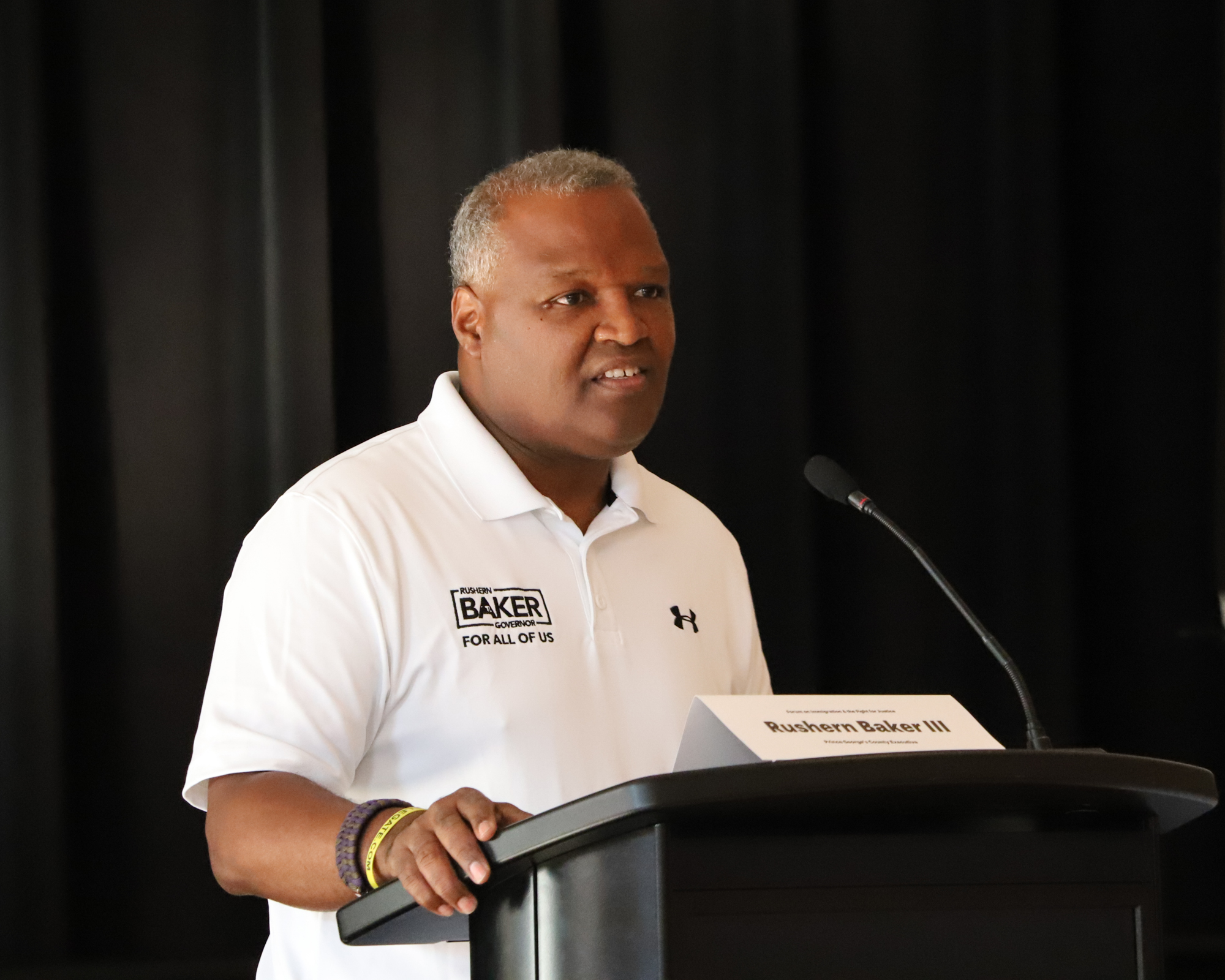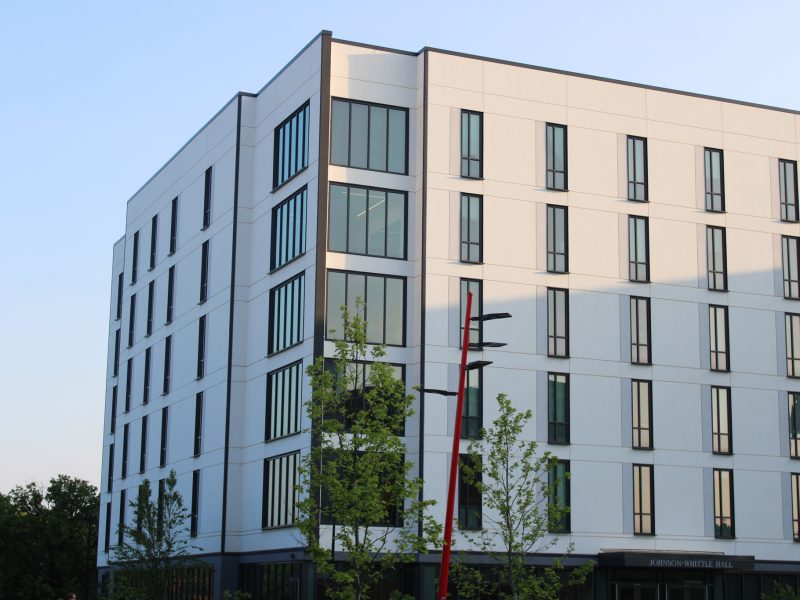Maryland gubernatorial candidate Rushern Baker decried anti-immigrant discrimination Sunday at the University of Maryland.
“We are very proud of the fact that our number-one thing is to make sure all of our residents regardless of their immigration status can access the services of the county without fear,” said Baker, the Prince George’s County executive. “The fact that we live under these times where at the federal level we see the tone and tenor, [that is] something that is quite honestly deplorable.”
His talk was part of the Forum on Immigration and The Fight For Justice event, which drew about 150 people to Stamp Student Union’s Colony Ballroom to discuss various challenges facing the immigrant community, as well as legislation — such as the Maryland Trust Act — proposed to help them.
The forum included eight panelists, including elected officials and representatives from CASA — a Latino immigration advocacy organization — and the ACLU. Our Revolution UMD, a progressive student group, organized the event.
[Read more: UMD SGA affirms support of federal legislation protecting DACA recipients]
Maryland Attorney General Brian Frosh, the forum’s keynote speaker, denounced President Trump at the forum, saying “he sows hate [and] fear.”
Trump announced earlier this month the Deferred Action for Childhood Arrivals program will be phased out, allowing Congress six months to replace it. As of fall 2016, there were 113 DACA students at this university.
“I’ve not seen as ugly an atmosphere in the United States as we are now living through in my entire adult life,” Frosh said during the forum. The only comparable experience, he said, was in 1968 when Martin Luther King Jr. was assassinated.
Lee Havis, a College Park resident, was one of about five people protesting the event. He said he was in favor of legal immigration, but that the distinction between legal and illegal immigration was not being made in the forum.
“It’s obviously a federal problem, but the state makes it worse by not helping, not cooperating and Brian Frosh and Rushern Baker are both urging protection of illegal aliens, and I think that’s largely what the conference is about, is about how to protect people who are here illegally,” Havis said.
[Read more: UMD students and administrators condemn Trump’s choice to end DACA]
Panelists including CASA Executive Director Gustavo Torres promoted the Maryland Law Enforcement and Trust Act, which in its initial iteration would have prevented local jails from screening arrestees for immigration violations, The Baltimore Sun reported. A watered down bill passed the House of Delegates, which would have allowed jails to hold people for immigration status “only if a judge signs off on a warrant.”
It was narrowed further and would have “mainly clarified that local police can’t ask about a person’s immigration status if they’re not under arrest,” but it faltered in the Maryland Senate, The Sun reported.
The Trust Act was meant to give the forum some structure, event organizer Michael Brennan said.
“Before coming in here, the attendees needed some direction as to where movement for justice on immigration is going to go,” the junior government and politics major said. “Focusing on the Trust Act on the state level and how people should get involved in that … is a really important component for it.”
Brennan said he hopes to see the Trust Act passed in the General Assembly in the spring.
In contrast to the Trust Act, section 287(g) of the Immigration and Nationality Act, which Anne Arundel, Frederick and Harford counties have already signed, trains local police in immigration enforcement, so that they can help locate and report undocumented immigrants.
“They’re able to do all those things that an [Immigration and Customs Enforcement] agent can,” Del. Carlo Sanchez (D-Prince George’s) said.
Because this law is in effect, Nick Steiner, the Equal Justice Works Immigrants’ Rights Fellow with the ACLU of Maryland, said he wanted to emphasize the importance of everyone knowing their rights when interacting with the police, regardless of their immigration status.
When stopped by a police officer, one of the first questions someone should ask, Steiner said, is “Am I being detained or am I free to go?”
If they have no legal reason for a detention, it is permissible to go, Steiner said.
If there is a detention, the officer has a legal reason for the holding. In that instance, regardless of immigration status, Steiner said it is important to say, “I would like to exercise my right to remain silent,” and to ask for a lawyer if arrested.
“The U.S. Constitution applies to everybody. It doesn’t matter if you’re undocumented or documented, if you’re an immigrant or a U.S. citizen, the Constitution applies to everybody,” he said. “Exercising those rights during a police encounter, I cannot tell you how helpful it is for an attorney like me at the ACLU to actually [bring] cases in court and defend your constitutional rights when you actually exercise those rights.”
Diamondback staff member Evan Kramer contributed to this article.



